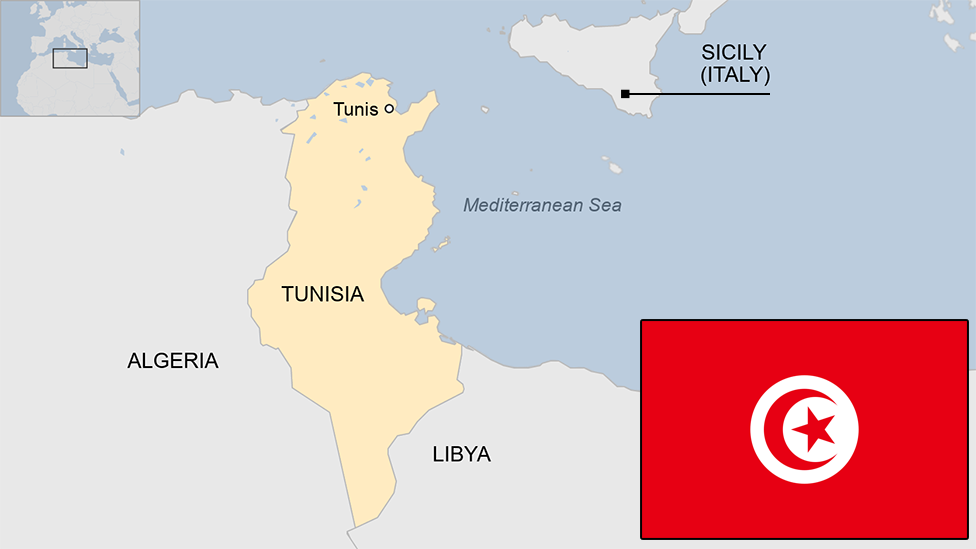Obituary: Zine al-Abidine Ben Ali
- Published
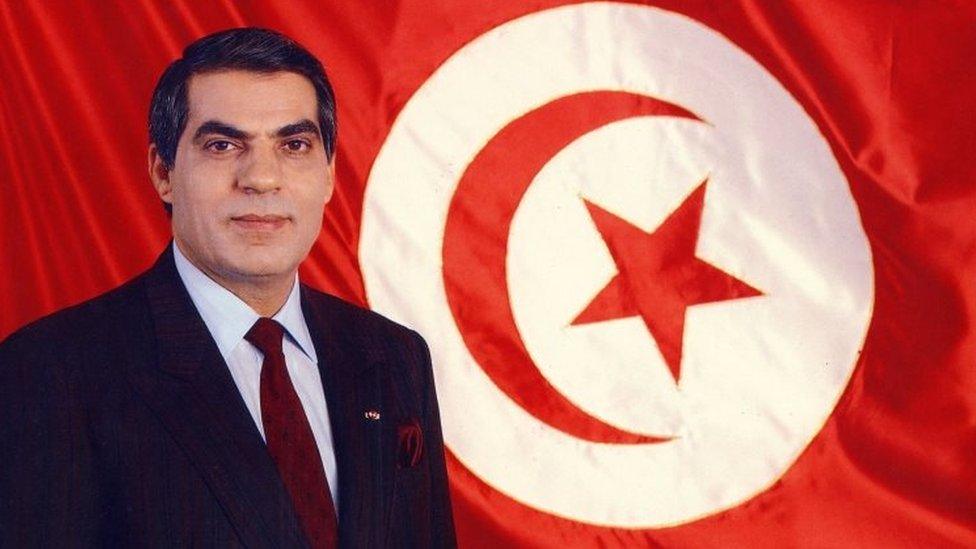
Zine al-Abidine Ben Ali took over in a bloodless coup in 1987
Zine al-Abidine Ben Ali led Tunisia for 23 years before stepping down in January 2011 amid an unprecedented wave of street protests.
As president, Ben Ali was credited with delivering stability and a measure of economic prosperity, but he received widespread criticism for suppressing political freedoms.
Six months after he was ousted, he and his wife were found guilty in absentia by a Tunisian court for embezzlement and misuse of public funds, and sentenced to 35 years in prison.
In 2012, a separate court sentenced him in absentia to life in jail over the killing of protesters.
Ben Ali was born to a modest family near the city of Sousse in 1936.
After completing his education in France and the US, he rose up the hierarchy in the Tunisian security establishment and served as ambassador to Poland in the early 1980s.
He became prime minister in 1987, shortly before ousting Tunisia's first post-independence ruler, Habib Bourguiba, in a bloodless palace coup. President Bourguiba was declared mentally unfit to rule.
Ben Ali promised a gradual transition towards democracy, though in his first two presidential polls - in 1989 and 1994 - he was elected unopposed.
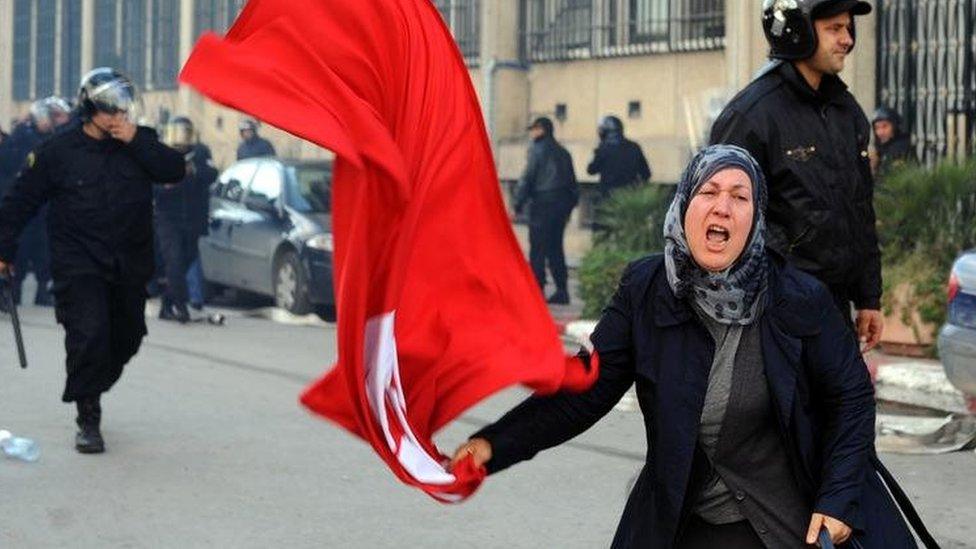
The Tunisian leader was forced out after a wave of demonstrations
When multi-party presidential elections were introduced in 1999 they were still one-sided affairs, with Ben Ali winning huge majorities.
The constitution was changed twice so he could continue to serve.
He won his final five-year term in 2009, with his share of the vote dropping just below 90%.
Under Ben Ali's rule, Tunisia saw steady economic growth.
It was praised for a progressive stance on women's rights and for economic reforms. Tunisia's beaches were a top destination for European tourists.
But unemployment among a swelling population of young people remained high, and large sections of the Tunisian interior remained poor.
The lavish palace has displays made from ivory and gold
In the style of many Arab rulers, Ben Ali's face became a constant presence in Tunisia, with giant posters of the president visible in public spaces across the country.
Political protest was not tolerated and human rights groups accused Ben Ali's regime of unfairly arresting and mistreating political dissidents.
Under the surface, there was resentment against the perceived corruption surrounding the ruling elite, some of which was detailed in US diplomatic cables published by Wikileaks at the end of 2010.
Ben Ali was married twice with six children. His second wife, Leila Trabelsi, played a prominent role in Tunisian public life and reportedly helped amass huge economic holdings for her extended family.
With no obvious rivals to Ben Ali, there was speculation that he was looking to pass on power to one of his relatives.
In the final days of 2010, a series of protests began in the centre of the country after a young graduate set himself on fire when stopped from selling fruit and vegetables without a licence.
The protests, advertised widely through social media networks, gradually spread.
Ben Ali initially blamed the demonstrations on a fringe of "extremists". But he changed tack on 13 January, expressing deep regrets for the deaths of protesters, pledging to introduce media freedoms, and promising not to stand in 2014.
But his offer of concessions failed to quell the unrest, and the following day, after huge crowds took to the streets of Tunis and clashed with the security forces once again, he fled the country for Saudi Arabia, where he died on 19 September 2019.
Ben Ali's death comes just days after Tunisia held the second free presidential election since he was ousted.
It was brought forward after the death in July of the country's first democratically elected president, Beji Caid Essebsi, who took office in 2014.
- Published19 September 2019
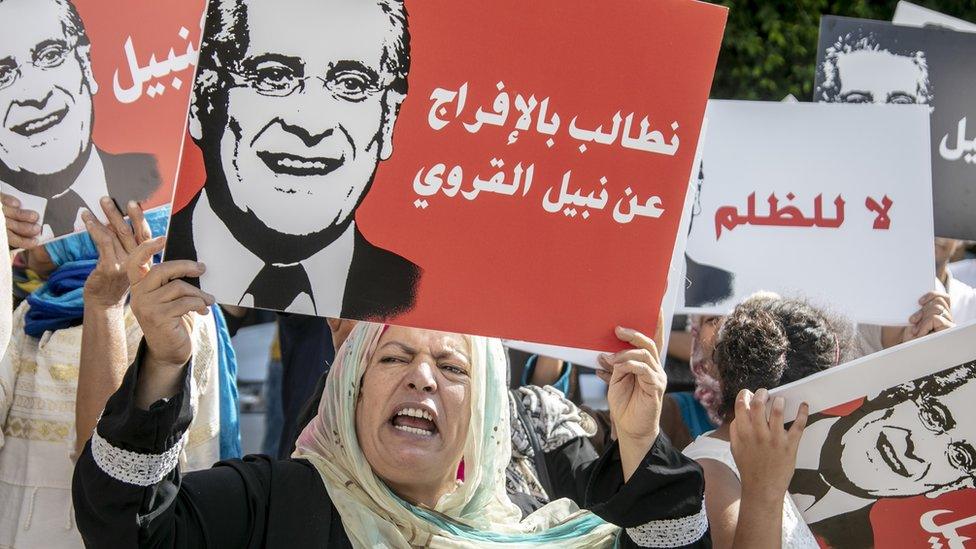
- Published19 September 2019
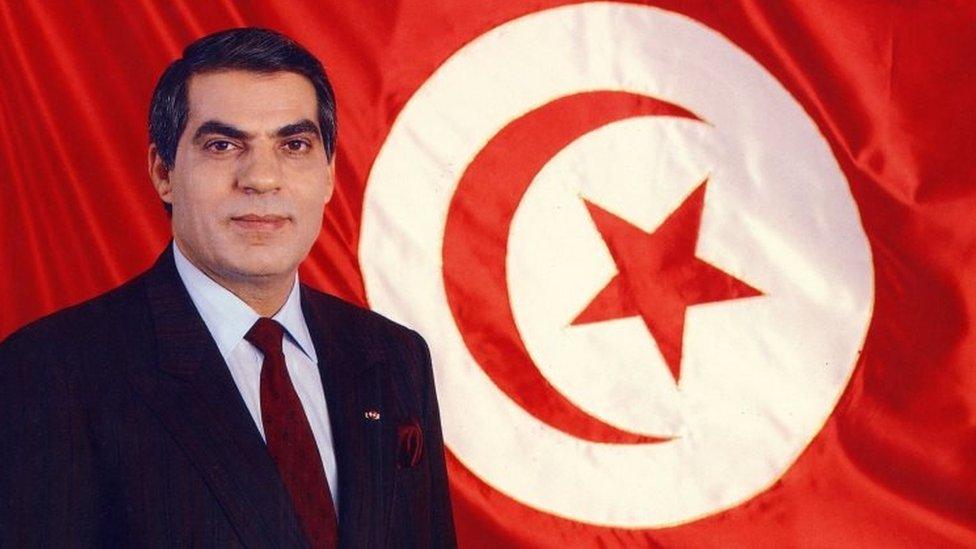
- Published25 July 2019
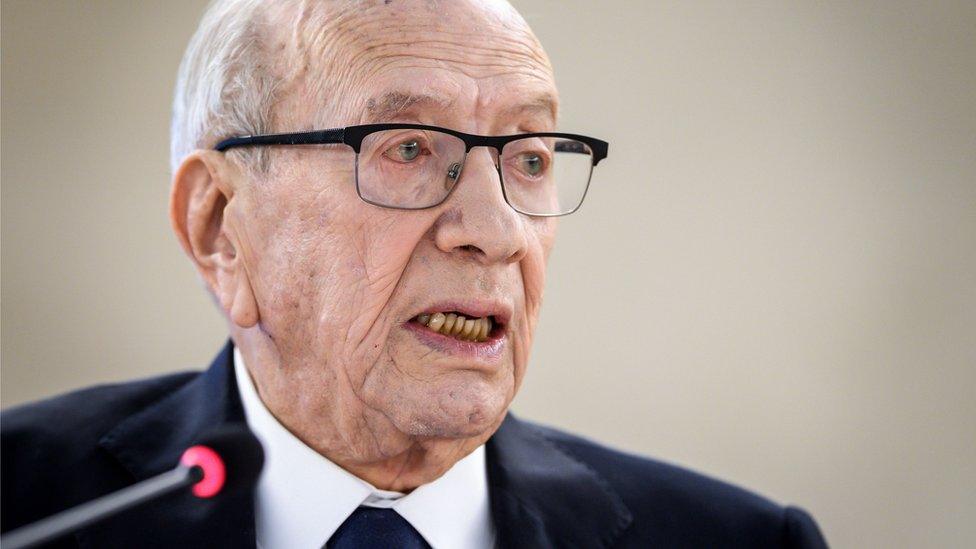
- Published9 October 2024
